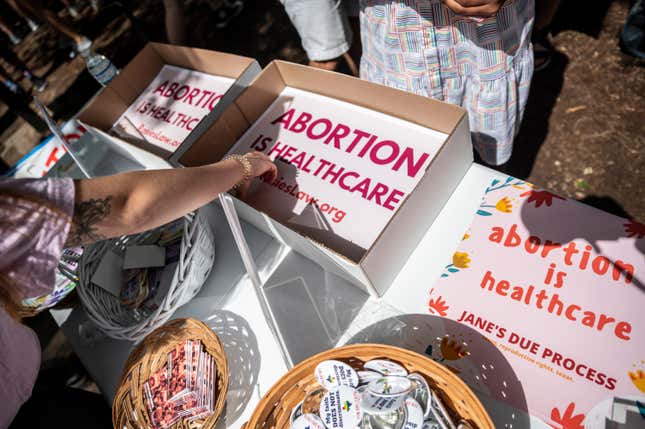Crisis Pregnancy Centers Are Spying on Pregnant People, New Study Says
The anti-abortion "clinics" don't just deceive pregnant people considering abortion care—they spy on and put them at legal risk, too.
AbortionPolitics

Crisis pregnancy centers, the anti-abortion organizations that attempt to lure mostly poor people of color with unwanted pregnancies to their premises and dissuade them from having abortions, are a proven danger to public health, according to a new study by The Alliance: State Advocates for Women’s Rights and Gender Equality.
The nationwide coalition of reproductive health advocates’ new research says crisis pregnancy centers have become an even greater threat to the health and safety of pregnant people amid the recent surge in state abortion bans and restrictions — particularly Texas’ SB8, a near-total abortion ban that relies on citizen policing and surveillance for enforcement, which took effect last September.
Where do CPCs fit into the success of laws like SB8? They’re “plugged into the global anti-abortion movement’s sophisticated digital infrastructure, which facilitates expansion, client surveillance, and systemic, coordinated promotion of anti-abortion disinformation,” the study says.
-

-

-

-

-

-

-

-

-

-

-

-

-

-

-

-

-

-

-

-

-

-

-

-

-

-

-

-

-

-

-

-

-

-

-

-

-

-

-

-








































